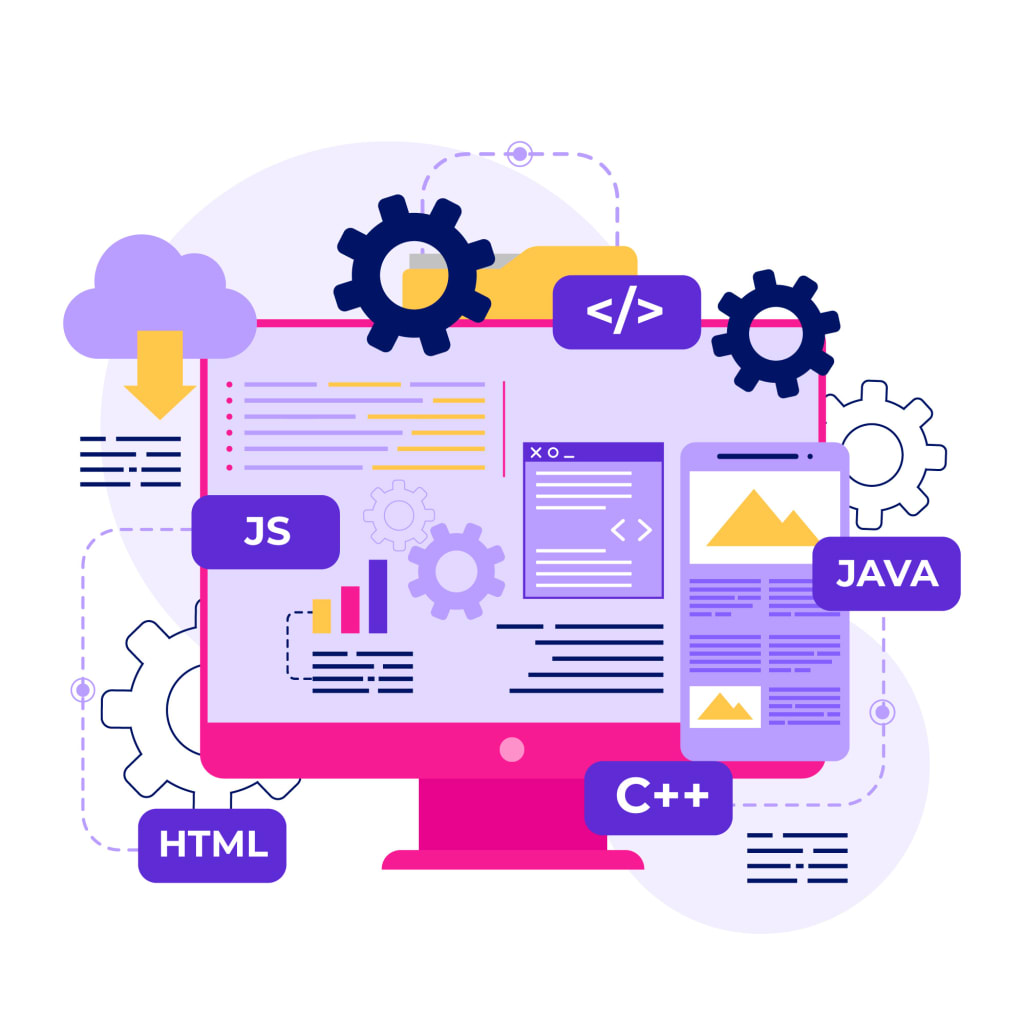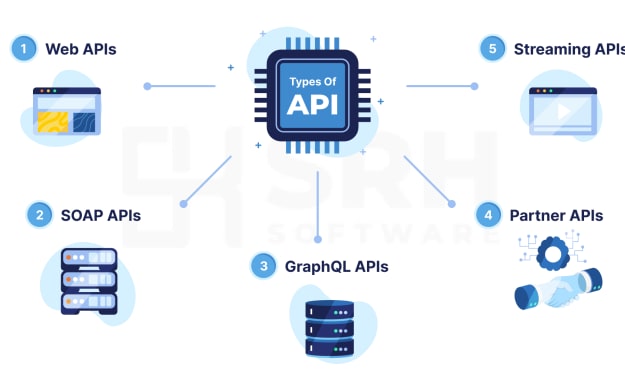The Future of Software Development - Trends to Watch
Reason to invest in software development company

Introduction
In today's rapidly evolving digital landscape, software development stands at the forefront of innovation. From artificial intelligence (AI) to blockchain, quantum computing, and beyond, the future promises transformative changes. This blog explores key trends that are shaping the future of software development Company, backed by facts and statistics.
1. Artificial Intelligence (AI) & Machine Learning (ML)
Artificial Intelligence (AI) and Machine Learning (ML) are revolutionizing software development across industries. AI enables machines to simulate human intelligence processes, such as learning, reasoning, and problem-solving. It encompasses various subfields like natural language processing, computer vision, and expert systems.
Machine Learning, a subset of AI, focuses on developing algorithms that can learn from and make predictions or decisions based on data. This technology is increasingly integrated into software applications to automate tasks, personalize user experiences, and optimize processes. For instance, ML algorithms power recommendation systems on streaming platforms and enhance predictive analytics in finance.
The global spending on AI is projected to exceed $110 billion by 2024, according to IDC. This substantial investment underscores AI's growing importance in business strategies worldwide. From enhancing customer service through chatbots to optimizing supply chain logistics, AI-driven applications are transforming how organizations operate and innovate.
2. Blockchain Technology
Initially known for its association with cryptocurrencies like Bitcoin, blockchain technology has evolved into a versatile tool for secure, transparent transactions. Blockchain operates as a decentralized ledger that records transactions across multiple computers in a tamper-proof manner, ensuring data integrity and reducing the risk of fraud.
The global blockchain market is expected to grow to $39.7 billion by 2025, driven by its applications beyond finance. Industries such as healthcare, supply chain management, and digital identity verification are exploring blockchain solutions to improve efficiency and security. Smart contracts, automated agreements that execute transactions when predefined conditions are met, further expand blockchain's utility in streamlining business processes.
Moreover, blockchain enhances transparency and trust in digital interactions by enabling verifiable transactions without intermediaries. This technology holds promise for revolutionizing industries that rely on secure and auditable data exchanges, paving the way for new business models and operational efficiencies.
3. Internet of Things (IoT) Integration
The Internet of Things (IoT) encompasses a vast network of interconnected devices embedded with sensors, software, and network connectivity. These devices collect and exchange data and the expert web developers are IOS App developers, enabling real-time insights and automation across various sectors. Statista forecasts that there will be over 75 billion IoT devices worldwide by 2025, revolutionizing industries from healthcare to agriculture.
Software developers play a pivotal role in harnessing IoT's potential through scalable platforms and advanced analytics. IoT applications range from smart homes and wearable health monitors to industrial automation and smart cities. By leveraging IoT data, organizations can improve decision-making, optimize resource allocation, and enhance customer experiences.
However, managing IoT security remains a significant challenge. Developers are focusing on robust encryption protocols, secure device management solutions, and stringent data privacy measures to mitigate risks associated with IoT deployments. As IoT continues to evolve, collaborative efforts across industries and innovative software solutions will be essential for realizing its full transformative potential.
4. Low-Code and No-Code Development Platforms
In response to the growing demand for rapid application development, low-code and no-code platforms have gained popularity among developers and citizen developers alike. These platforms empower users with varying technical expertise to create software applications without extensive coding knowledge, using visual interfaces and drag-and-drop functionalities.
Gartner predicts that by 2024, more than 65% of all application development activity will occur on low-code platforms. These platforms streamline the development lifecycle by accelerating prototyping, facilitating iterative development, and promoting collaboration between business stakeholders and IT teams. By reducing reliance on traditional coding methods, organizations can accelerate time-to-market, improve agility, and foster innovation across departments.
Moreover, low-code platforms democratize software development by enabling non-technical users to contribute to application development initiatives. Citizen developers, including business analysts and domain experts, can create and customize applications to meet specific business needs, thereby enhancing organizational efficiency and responsiveness to market demands.
5. Quantum Computing
Quantum computing represents a paradigm shift in computational power, leveraging principles of quantum mechanics to perform complex calculations at speeds far surpassing classical computers. While still in its nascent stages, quantum computing holds promise for solving optimization problems, simulating molecular structures, and advancing cryptography.
Major technology companies such as IBM, Google, and Microsoft are investing in quantum research and development to unlock the potential of quantum computing. McKinsey estimates that by 2050, quantum computing could generate up to $450 billion annually in economic value across industries. However, significant technical challenges, including error correction and scalability, must be addressed to achieve practical quantum applications on a commercial scale.
Despite these challenges, quantum computing's potential to revolutionize industries such as drug discovery, financial modeling, and climate simulation underscores its importance as a future-oriented technology. Researchers and developers continue to explore novel approaches and algorithms to harness quantum capabilities and address pressing global challenges.
6. DevOps & Agile Methodologies
DevOps practices and Agile methodologies have reshaped software development processes, emphasizing collaboration, continuous integration, and rapid iteration. According to Statista, 74% of organizations have adopted DevOps to accelerate software delivery and improve operational efficiency.
DevOps bridges the gap between development and operations teams, fostering a culture of automation, transparency, and continuous improvement. Continuous Integration (CI) and Continuous Deployment (CD) pipelines automate code integration, testing, and deployment processes, enabling faster feedback loops and shorter release cycles. Agile principles, such as customer collaboration, adaptive planning, and iterative development, ensure software projects remain aligned with evolving business requirements and user feedback.
By embracing DevOps and Agile methodologies, organizations can enhance development speed, quality, and responsiveness to market changes. These methodologies promote cross-functional teamwork, reduce development silos, and empower teams to deliver value-driven software solutions that meet customer expectations and drive business growth.
Conclusion
The future of software development is characterized by innovation, agility, and transformative technologies that redefine industry standards and drive digital transformation. From AI-driven insights to blockchain-enabled trust, IoT's interconnected ecosystems, and quantum computing's computational power, developers are at the forefront of shaping tomorrow's digital landscape.
Organizations can capitalize on new opportunities and overcome challenges in a competitive global economy by staying informed about emerging trends, leveraging advanced technologies, and adopting collaborative development practices. Embracing AI, blockchain, IoT, quantum computing, and agile methodologies enables developers to create resilient, scalable, and secure software solutions that meet the evolving needs of businesses and society.
As custom software development evolves, proactive adaptation to technological advancements and market demands will be essential for organizations seeking sustained growth and innovation. By investing in iPhone app developers, fostering a culture of experimentation and learning, and embracing a customer-centric approach, developers can drive meaningful change and contribute to a future where technology enhances human experiences and accelerates progress.
About the Creator
Enjoyed the story? Support the Creator.
Subscribe for free to receive all their stories in your feed.





Comments
There are no comments for this story
Be the first to respond and start the conversation.